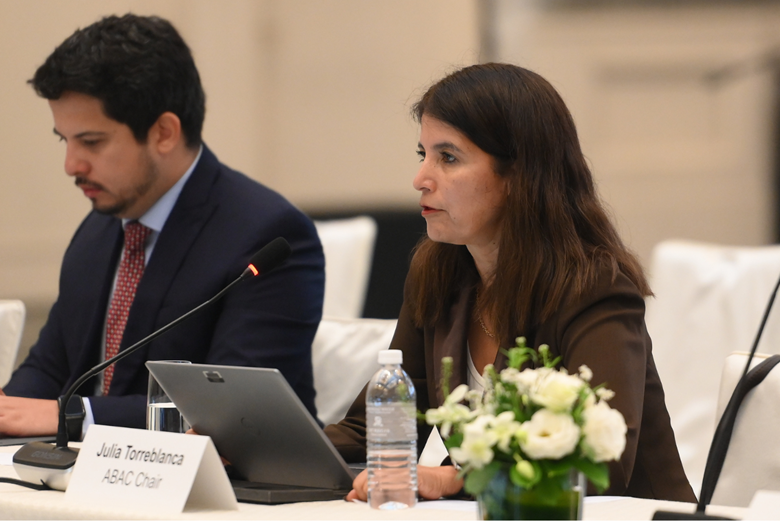
The APEC Business Advisory Council (ABAC) meeting this week in Kuala Lumpur, Malaysia expressed deep concerns about the growing pressures of economic fragmentation and the risks that this poses to growth, inclusion and the climate fight.
"We are at a critical juncture for the global economy and the planet. Businesses and governments must come together to act decisively to create a prosperous, sustainable and stable future for our communities," said ABAC Chair 2024, Julia Torreblanca of ABAC Peru.
"As business advisors to the APEC Leaders, we are committed to playing our role in collaboratively tackling these challenges for the benefit of our people."
ABAC members engaged this week in broad-ranging discussions with APEC senior officials, focused on the key issue areas of work outlined by ABAC Peru. These discussions are the first of many public-private interactions with APEC senior officials and ministers and set the stage for another year of ambitious collaboration.
"Our theme for the year is 'People, Business, Prosperity', to guide our work across key issues including trade and investment facilitation, digital transformation, sustainability and inclusion," Torreblanca said.
According to the APEC Policy Support Unit, foreign direct investment (FDI) inflows into the APEC region have been falling (-9% in 2022) despite the fact the bloc performs better than global average at investment facilitation.
"Seeing APEC FDI inflows decrease even with post-COVID rebound is concerning. Action is needed urgently to get us back into the route of sustainable economic growth," Torreblanca added.
One of ABAC's priorities for 2024 is strengthening the economic architecture of the region, working closely with APEC colleagues to make tangible progress towards the Free Trade Area of the Asia-Pacific (FTAAP).
"The eventual FTAAP should draw on the best of the high-quality trade agreements in the region," said Torreblanca.
"We should build towards that now through practical initiatives, for example, digital trade coherence and responsible artificial intelligence, supply chains, women's access to financing and the trade tools we need to fight climate change."
Another ABAC 2024 priority is to develop practical ideas about how to support the transition from the informal to the formal economy.
"This is a real challenge for many developing economies in the region,hindering our ability to fulfil our economic potential and provide people with more and better opportunities," Torreblanca explained. "We want to develop pragmatic approaches that can help shift the dial."
ABAC also issued a statement for the World Trade Organization's 13th Ministerial Conference, urgently calling for trade ministers to drive ambitious outcomes, including the reinstatement of the full functioning of the dispute settlement system and a permanent ban on tariffs on electronic transmissions.
Lastly, the ABAC Chair noted that "We are deeply grateful to the Malaysian government for their support in hosting this meeting. We specially thank the Honourable Senator Tengku Datuk Seri Utama Zafrul Tengku Abdul Aziz, Minister of Investment, Trade and Industry, and the Honourable Liew Chin Tong, Deputy Minister, who shared critical insights which will serve as valuable inputs to our work."
ABAC will convene its next meeting in late April in Hong Kong, China as it works to develop its recommendations for presentation to APEC Leaders during their summit in November.






